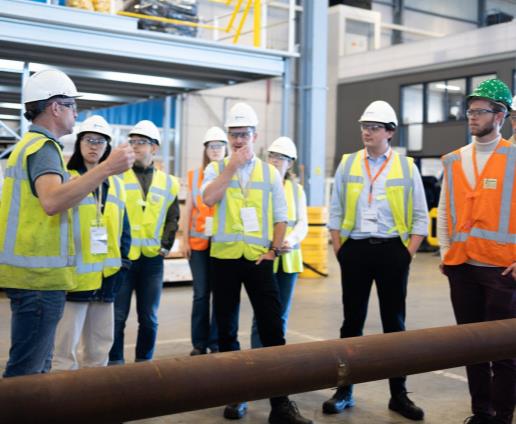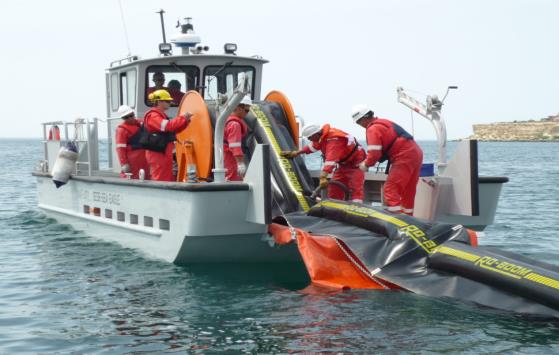COURSE OVERVIEW
HE1822 : Professional Process Safety Inspector (PPSI): Module 3: Human Factors & Cultural Aspects

OVERVIEW
| COURSE TITLE | : | HE1822 : Professional Process Safety Inspector (PPSI): Module 3: Human Factors & Cultural Aspects |
| COURSE DATE | : | Dec 16 - Dec 20 2024 |
| DURATION | : | 5 Days |
| INSTRUCTOR | : | Mr. Raymond Tegman |
| VENUE | : | Abu Dhabi, UAE |
| COURSE FEE | : | $ 5500 |
| Register For Course | ||
OTHER SCHEDULED DATES
| Date | : | Apr 28 - May 02 (5 Days) | Location | : | Dubai, UAE | Classroom Fee (US$) | : | $ 5500 | Course Info |
| Date | : | Jul 21 - Jul 25 (5 Days) | Location | : | Al Khobar, KSA | Classroom Fee (US$) | : | $ 5500 | Course Info |
| Date | : | Oct 13 - Oct 17 (5 Days) | Location | : | Doha, Qatar | Classroom Fee (US$) | : | $ 6000 | Course Info |
Course Description
This certification program is designed to train delegates on Process Safety Inspection and certify them as Professional Process Safety Inspectors. The program comprises of 4 modules that shall be taken in order:-
Module 1: Fundamentals of Process Safety
Module 2: Process Safety Management (PSM) &
Regulatory Framework
Module 3: Human Factors & Cultural Aspects
Module 4: Process Safety Auditing & Site Inspection
Module 3 of this program is designed to provide participants with a detailed and up-to-date overview of Human Factors & Cultural Aspects. It covers the human factors and ergonomics in process safety including the cognitive and physical human limitations; the human error and systems design, work environment and safety culture and task analysis; the significance of organizational culture, dimensions of safety culture and behavioral-based safety; and the leadership’s role in fostering safety culture and safety culture assessment tools.
During this interactive course, participants will learn the importance of training in process safety and developing the effective training programs; the competency assessment and management; the training methodologies and tools including refresher training and its significance; the human reliability analysis (HRA) techniques and the use of HRA in conjunction with other tools; predicting and reducing human error; the feedback and iteration in HRA; the role of communication in safety and tools for effective safety communication; collaborating between departments and teams; handling near-misses and feedback loops; and using technology in safety communication.
Module 1: Fundamentals of Process Safety
Module 2: Process Safety Management (PSM) &
Regulatory Framework
Module 3: Human Factors & Cultural Aspects
Module 4: Process Safety Auditing & Site Inspection
Module 3 of this program is designed to provide participants with a detailed and up-to-date overview of Human Factors & Cultural Aspects. It covers the human factors and ergonomics in process safety including the cognitive and physical human limitations; the human error and systems design, work environment and safety culture and task analysis; the significance of organizational culture, dimensions of safety culture and behavioral-based safety; and the leadership’s role in fostering safety culture and safety culture assessment tools.
During this interactive course, participants will learn the importance of training in process safety and developing the effective training programs; the competency assessment and management; the training methodologies and tools including refresher training and its significance; the human reliability analysis (HRA) techniques and the use of HRA in conjunction with other tools; predicting and reducing human error; the feedback and iteration in HRA; the role of communication in safety and tools for effective safety communication; collaborating between departments and teams; handling near-misses and feedback loops; and using technology in safety communication.
TRAINING METHODOLOGY
This interactive training course includes the following training methodologies:
LecturesWorkshops & Work Presentations
Case Studies & Practical Exercises
Videos, Software & Simulators
In an unlikely event, the course instructor may modify the above training methodology for technical reasons.
VIRTUAL TRAINING (IF APPLICABLE)
If this course is delivered online as a Virtual Training, the following limitations will be applicable:
| Certificates | : | Only soft copy certificates will be issued |
| Training Materials | : | Only soft copy materials will be issued |
| Training Methodology | : | 80% theory, 20% practical |
| Training Program | : | 4 hours per day, from 09:30 to 13:30 |
RELATED COURSES

HE1926 : HSSE Systems Fundamentals for Safety (Company Specific)
- Date: Nov 10 - Nov 14 / 3 Days
- Location: Istanbul, Turkey
- Course Details Register

HE1394 : Professional Crisis Management Specialist (In Accordance with BS 11200:2014)
- Date: Nov 10 - Nov 14 / 3 Days
- Location: Dubai, UAE
- Course Details Register

HE1931 : Oil Spill Equipment Deployment Assignment
- Date: Nov 10 - Nov 14 / 3 Days
- Location: Dubai, UAE
- Course Details Register

HE0150 : Technical Safety Engineering
- Date: Nov 09 - Nov 13 / 3 Days
- Location: Dubai, UAE
- Course Details Register
